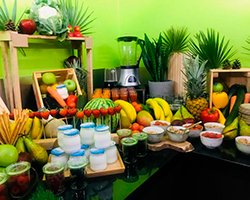In a time when the world is grappling with the ongoing COVID-19 pandemic, researchers at the University of Georgia have uncovered a potentially simple yet effective way to fight against the virus: tea. Led by virologist Malak Esseili from the Center for Food Safety in the College of Agricultural and Environmental Sciences, the study explores the antiviral properties of various teas against SARS-CoV-2, the virus responsible for COVID-19.
Published in the journal Food and Environmental Virology, the study highlights how certain teas can deactivate SARS-CoV-2 in saliva by up to 99.9%. This discovery is particularly significant as the virus often replicates in the oral cavity before progressing to the lungs.
Esseili’s inspiration for the research stemmed from the need for accessible and palatable preventive measures against COVID-19 for herself and her family. With her background in virology and a desire for a simple solution, she turned to the widely consumed beverage: tea.
“Our findings suggest that tea could serve as an additional layer of intervention against SARS-CoV-2,” explained Esseili. “While not a replacement for medical care, tea offers a promising and accessible option for individuals and families to incorporate into their daily routines.”
The study, conducted in collaboration with then-graduate student Julianna Morris, examined 24 different commercially available teas, focusing on varieties known for their potential respiratory health benefits. Among them, raspberry zinger, eucalyptus mint, mint medley, green tea, and black tea emerged as the most effective in reducing the virus in saliva.
Both as a drink and as a gargle, tea exhibited remarkable antiviral properties. Black tea, in particular, demonstrated the highest efficacy, reducing the virus by 99.9% within 10 seconds of exposure. The researchers prepared tea infusions using standard brewing methods, emphasizing the simplicity and accessibility of the intervention.
“While further clinical trials are needed to fully understand the implications of our findings, tea presents a promising avenue for individuals seeking to supplement medical care,” remarked Esseili.
As the world continues to combat the COVID-19 pandemic, research like this offers hope for innovative and accessible strategies to mitigate the spread of the virus. While tea may not serve as a standalone solution, its potential as an additional preventive measure underscores the importance of exploring unconventional approaches in the fight against COVID-19.











